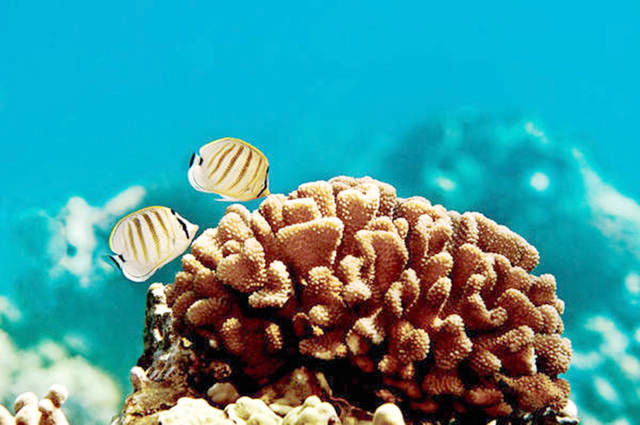HONOLULU — Aquarium fishing permits in Hawaii are now invalid and illegal, due to a Friday Oahu Circuit Court ruling by Judge Jeffrey Crabtree. That applies to existing permits for use of fine mesh nets to catch aquatic life for
HONOLULU — Aquarium fishing permits in Hawaii are now invalid and illegal, due to a Friday Oahu Circuit Court ruling by Judge Jeffrey Crabtree.
That applies to existing permits for use of fine mesh nets to catch aquatic life for aquarium purposes.
It’s another step in a long legal battle that began in 2012 between the state Department of Land and Natural Resources and the environmental law firm Earthjustice.
“The department respects Judge Crabtree’s ruling and will fully comply so long as it remains in effect,” DLNR spokeswoman Deborah Ward said in a news release about the decision on Friday.
Earthjustice is representing several plaintiffs and sued DLNR for failing to comply with the Hawaii Environmental Policy Act and study environmental impacts before issuing aquarium collection permits.
The concern is too many fish are being taken from Hawaii’s reefs.
Crabtree also ordered DLNR not to issue any new permits pending environmental review.
And while DLNR representatives are honoring the decision, they said the department doesn’t fully agree with the ruling.
“The department continues to believe that existing aquarium fishing practices are sustainable and environmentally sound,” Ward said in the release. “The department appreciates that dozens of local businesses and families depend on the industry for their livelihoods.”
Currently there are 231 active commercial collection permits in Hawaii, according to DLNR. Earthjustice representatives say their plaintiffs are concerned that too many fish and other wildlife are being taken without regulation.
“We asked the court to order the halting of commercial collection under existing permits because, given DLNR’s historical refusal to acknowledge the aquarium trade’s impacts, plaintiffs have no faith DLNR will take any action to prevent the ongoing illegal collection on its own,” said Earthjustice attorney Summer Kupau-Odo, who represents the plaintiffs.



